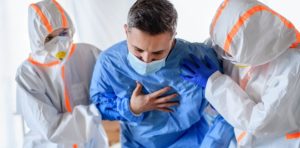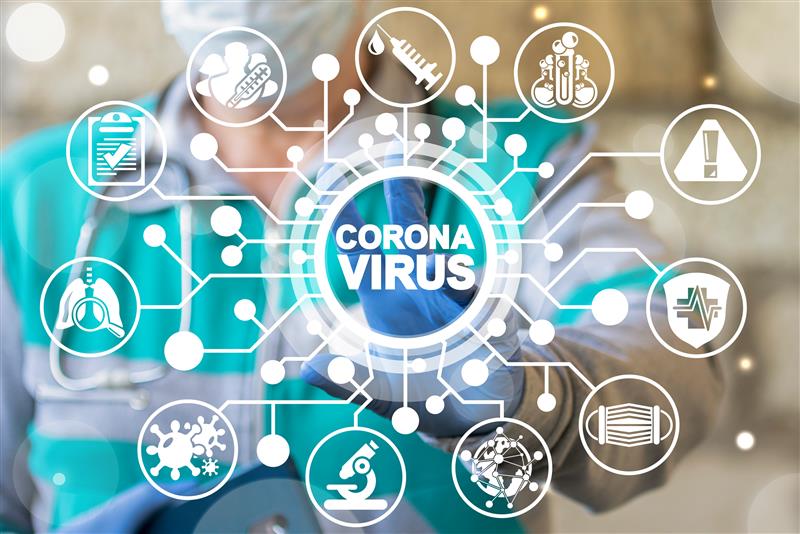Coronavirus disease (COVID-19) is an infectious disease caused by a newly discovered coronavirus.

Most people infected with the COVID-19 virus will experience mild to moderate respiratory illness and recover without requiring special treatment. Older people, and those with underlying medical problems like cardiovascular disease, diabetes, chronic respiratory disease, and cancer are more likely to develop serious illness.
The best way to prevent and slow down transmission is be well informed about the COVID-19 virus, the disease it causes and how it spreads. Protect yourself and others from infection by washing your hands or using an alcohol based rub frequently and not touching your face.
The COVID-19 virus spreads primarily through droplets of saliva or discharge from the nose when an infected person coughs or sneezes, so it’s important that you also practice respiratory etiquette (for example, by coughing into a flexed elbow).
At this time, there are no specific vaccines or treatments for COVID-19. However, there are many ongoing clinical trials evaluating potential treatments.
ENDA provides updated information from respectable scientific sources.
WHO – World Health Organisation

Coronavirus disease (COVID-19) is an infectious disease caused by a newly discovered coronavirus.
Most people infected with the COVID-19 virus will experience mild to moderate respiratory illness and recover without requiring special treatment. Older people, and those with underlying medical problems like cardiovascular disease, diabetes, chronic respiratory disease, and cancer are more likely to develop serious illness.
The best way to prevent and slow down transmission is be well informed about the COVID-19 virus, the disease it causes and how it spreads. Protect yourself and others from infection by washing your hands or using an alcohol based rub frequently and not touching your face.
The COVID-19 virus spreads primarily through droplets of saliva or discharge from the nose when an infected person coughs or sneezes, so it’s important that you also practice respiratory etiquette (for example, by coughing into a flexed elbow).
At this time, there are no specific vaccines or treatments for COVID-19. However, there are many ongoing clinical trials evaluating potential treatments. WHO will continue to provide updated information as soon as clinical findings become available.
Stay informed:
https://www.who.int/health-topics/coronavirus#tab=tab_1
CDC – Centers for Disease Control – For Healthcare Professionals

Healthcare facilities and clinicians should prioritize urgent and emergency visits and procedures now.
These actions can preserve staff personal protective equipment (PPE) and patient care supplies; ensure staff and patient safety; and expand available hospital capacity:
- Delay all elective ambulatory provider visits
- Reschedule elective and non-urgent admissions
- Delay inpatient and outpatient elective surgical and procedural cases
- Postpone routine dental and eyecare visit
Coronavirus Disease 2019 (COVID-19)
Overview

Training related to Coronavirus Disease 2019 (COVID-19) is available through the TRAIN Learning Network, a national learning network that aggregates training opportunities for public health, healthcare, and preparedness professionals from thousands of training providers. This includes training from the Centers for Disease Control and Prevention (CDC), World Health Organization, European Centre for Disease Prevention and Control, and other organizations.

